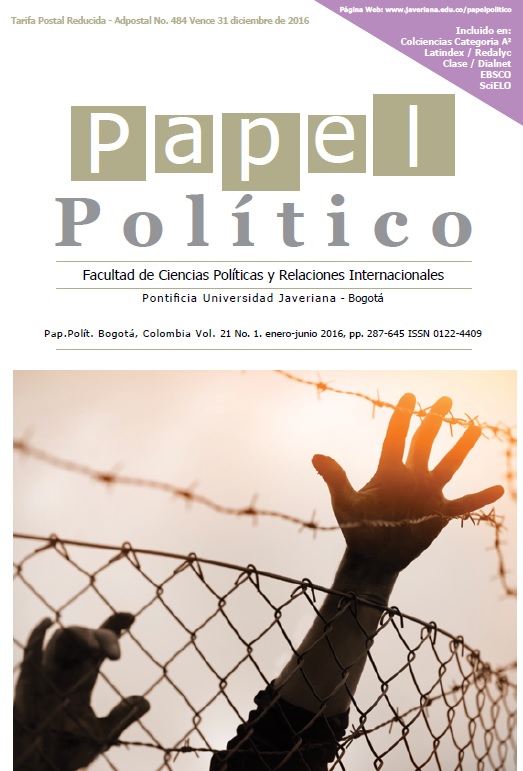Abstract
Los procesos de globalización y de regionalización en el mundo exigen nuevas formas de regulación, las cuales deberán superar, coordinar y organizar las estructuras normativas institucionales actuales características de la modernidad. El presente trabajo es un ensayo epistemológico, basado en Jean Piaget, que propone la necesidad de ampliar las actuales estructuras normativas y pasar de un estadio institucional-moderno a un estadio sistémico-posmoderno. Esta pro-puesta está basada, primero, en la existencia de estadios sociocognitivos que determinan las características esenciales de toda estructura social de regulación. Segundo, en el surgimiento y en la construcción global de un nuevo estadio sociocognitivo de estructuras regulativas: el estadio constructivista-sistémico. Tercero, el enfoque predice el surgimiento de una nueva estructura estatal con carácter sistémico: el Estado internacional. Esta nueva estructura de gobernanza sistémica deberá poder surgir solo sobre la base de las estructuras institucionales de normación del actual Estado-nación. El análisis metodológico neopiagetiano —con carácter dialéctico— que expone este artículo pretende demostrar la tesis sociocognitiva mencionada.
Esta revista científica se encuentra registrada bajo la licencia Creative Commons Reconocimiento 4.0 Internacional. Por lo tanto, esta obra se puede reproducir, distribuir y comunicar públicamente en formato digital, siempre que se reconozca el nombre de los autores y a la Pontificia Universidad Javeriana. Se permite citar, adaptar, transformar, autoarchivar, republicar y crear a partir del material, para cualquier finalidad (incluso comercial), siempre que se reconozca adecuadamente la autoría, se proporcione un enlace a la obra original y se indique si se han realizado cambios. La Pontificia Universidad Javeriana no retiene los derechos sobre las obras publicadas y los contenidos son responsabilidad exclusiva de los autores, quienes conservan sus derechos morales, intelectuales, de privacidad y publicidad.
El aval sobre la intervención de la obra (revisión, corrección de estilo, traducción, diagramación) y su posterior divulgación se otorga mediante una licencia de uso y no a través de una cesión de derechos, lo que representa que la revista y la Pontificia Universidad Javeriana se eximen de cualquier responsabilidad que se pueda derivar de una mala práctica ética por parte de los autores. En consecuencia de la protección brindada por la licencia de uso, la revista no se encuentra en la obligación de publicar retractaciones o modificar la información ya publicada, a no ser que la errata surja del proceso de gestión editorial. La publicación de contenidos en esta revista no representa regalías para los contribuyentes.


